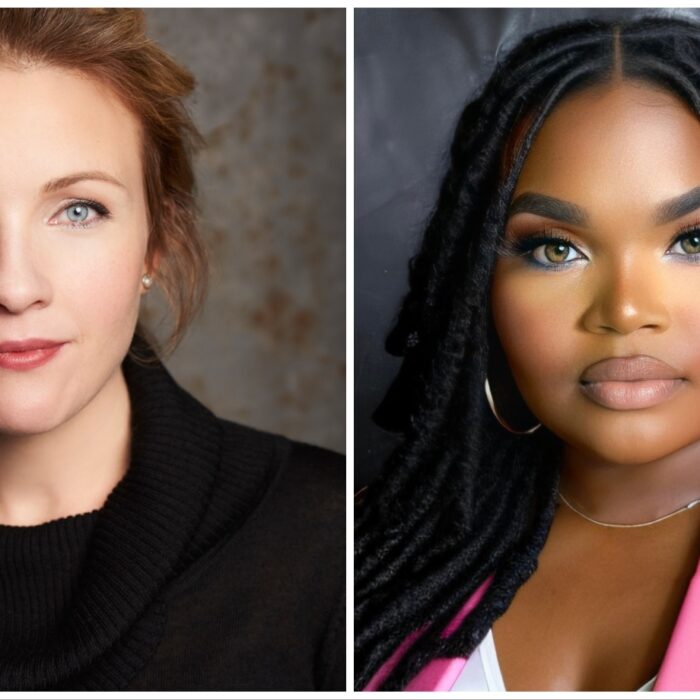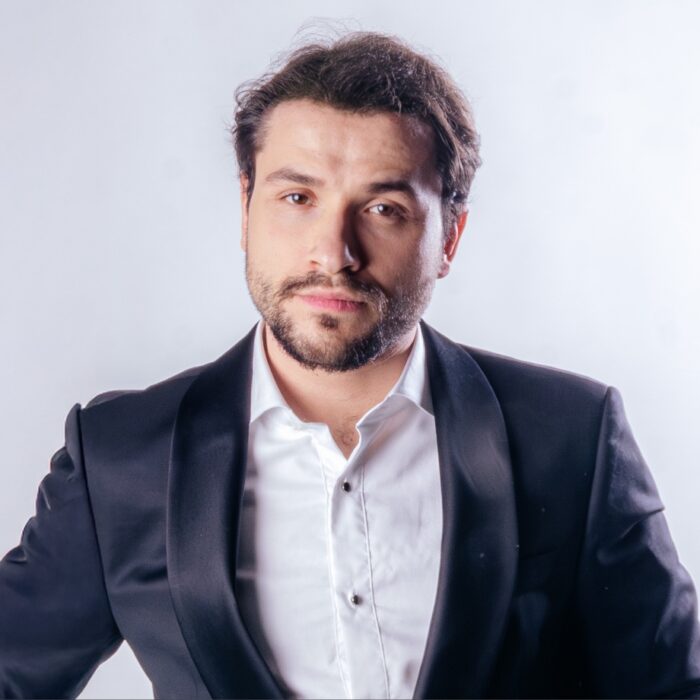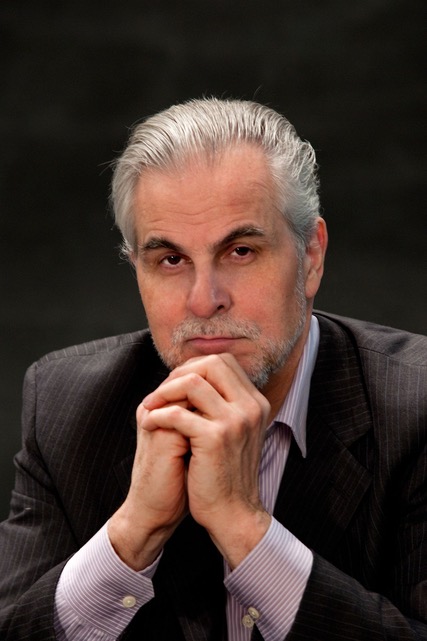
Q & A: Soprano Laura Helene Hansen on What Interests Her Most in Life & Singing
By Mike Hardy(Photo: Victoria Elmas)
(Warning: this article contains explicit language)
Danish soprano Laura Helene Hansen trained at the Royal Academy of Music, Copenhagen, and the Opera Academy of the Royal Danish Opera, where her roles included Cio-Cio-San, Contessa Almaviva, Manon Lescaut, Die Marschallin and Elisabetta. She was also a subject of the TV series The Next Diva in Denmark last year. From the age of 12 to 20, she had a drug addiction. Singing opera helped pull her out of addiction, and she is now an inspirational and commanding figure, already receiving attention from international houses.
OperaWire caught up with Laura at her home in Copenhagen.
OperaWire: Hi Laura. Congratulations on winning the Léonie Sonning Talent Prize. What does this mean to you?
Laura Helene Hanson: Well, I’ve known about it since November. So I had to keep the secret for like half a year, which sucked. I was like, you know, bursting at the seams to just like tell everyone and their mothers, but I kept my cool and I kept the secret. I think I kind of suspected it because I was in the television show, the documentary about my life.
OW: Yes, so the documentary was about your life, especially concerning your drug addiction from the age of twelve to twenty. Of course, this is an amazing story, and I want to focus on you as a singer; your gifts and talents rather than making that the focal point of our interview, but it is an amazing tale. So tell me about your upbringing and how drugs played such a role in your early life?
LHH: It’s not that uncommon, actually. I think there’s a lot more of a drug culture. We have an insane drinking culture in Denmark, so people do know that they start young, but they also start young with drugs. I wasn’t hanging out with a lot of people my own age. I think I was very unlucky in that sense, that a lot of, let’s call them not very responsible adults, took me under their wing and wanted to share their coping mechanisms with a child.
I was diagnosed with Crohn’s disease when I was quite young, and I didn’t have any language for pain and handling pain and talking about nerves and being scared of being sick and I was finally getting better. So I think I was just holding on to the feeling of energy and the feeling of carefreeness. Then when you introduce something so escaping as drugs and present it to a kid: “Here’s a pill, you just need to swallow it and then all of your worries, all of your pains will be gone.” A kid can’t handle that. Of course I’m going to take it. And it was a lot easier than drinking. I didn’t like the taste of drinking. I didn’t like the volume I had to ingest. So I never really drank because drugs were frankly just really convenient. And I knew them from the hospitals. I knew that I could take a pill or I could get a shot. And so it it almost felt very natural, which is scary.
OW: What were you addicted to? What specific drugs were you addicted to?
LHH: For the longest time it was not like one substance, it was just what was provided to me. So it was more the feeling of not being in my body. I just had like two groups, either uppers or downers. I liked uppers a lot when I was a kid because I was kind of shy. So getting uppers would make me feel more like the person I thought I might be. So, I ended up going to rehab and that was for cocaine and hash. So, I had. Like, a double whammy.
OW: So how did you discover music and particularly how did you discover opera and the fact you had a voice?
LHH: I’ve always had a very intuitive use of my voice like having just like something that made sense, but not being able to use it either because I was really weird, so I didn’t know how to be weird and sing. I would listen to a lot of goth music, a lot of metal, which is usually kind of a gateway to opera because it’s so grand. I just loved everything a little odd. But then I fell in love with musical theatre because I was like…this is cool. This is camp.
Even though I was a very active drug user at that time, I saw they had auditions for this talent school, which was just like a bootcamp for people who wanted to do musical theater. And I didn’t know anything about anything, but I was good at keeping people’s attention for good or for worse. And I tried out and they were like: “Yeah, sure, you can be in the background.” And I was in the background for a long time, but you couldn’t really deny, I think, that I had some kind of…and I hate to say it…like star quality. I was just so in it and I’ve always been so good at playing make-believe and stuff like that. So I was just so in it. We were going to do a production of “Legally Blonde.” And the woman who was cast to play Elle Woods, she went to the conservatory in the big city, Aarhus, which is not even a big city, but for me, that was huge. And for me also, people who went to the conservatory, like the Royal Academy of Music.
If you go there, you’re like barely human in my world. That’s something where you’ve been born and bred to do exactly that one thing and now you’re doing it and it’s great. And it’s not something a mere mortal will ever be anywhere close to. So I met this woman, and she was just like…such a human…and she just met me at eye level, and I wasn’t even clean when I met her but a couple of months later…it’s difficult to remember how I felt back then because I was really fucked up…but she just maybe inspired me. And I stopped.
I quit drugs while we were doing “Legally Blonde” and I started rehab while we were in production. And she had just started a course at the conservatory to learn how to teach and she needed a student, and she was like: “Hey, if you want to keep evolving your voice, I would love to teach you.” She was a musical singer with a classical technique and she was studying to become a classical singer and I was just like: “Ew, no. That’s disgusting! What am I going to use that for?” She never forced a genre over her head. But she made it seem very chill and I started singing with her. And she was like: “You know, you can apply for the school” I said, “No, people don’t do that. You have to be called, you have to be summoned by a higher power.” And she responded: “Then I have the higher power who summons you, please. Just try.” And, so I tried.
I got in my first time applying, even though I didn’t even know that the little dots on the paper had letters, A, B, C. They called me in for like a meeting, they were like: “You’re good enough, but you don’t know anything. Are you sure you want to study a bachelor’s degree in classical singing when you don’t know anything?” And I was just standing there like a newborn, you know, I was like a little dove. And in my mind I was completely doe-eyed, but I was sure I could do it. And that was a hardcore bachelor’s degree. And people were so supportive and so ambitious on my behalf, and also just like, willing to help. And I remember just promising myself, I’m going to ask all the questions, all of them. I was just so annoying probably, but people were never mean to me they were just like: “Oh yeah that’s the new kid. She knows nothing but she’s great on stage, fantastic.” (Laughing)
OW: So I’m guessing at some stage you must have decided that singing opera could be cool? Who did you hear that inspired you, who made you want to sing opera?
LHH: My first singing teacher was Reinaldo Macias, who’s a Cuban-American tenor. He’s really passionate. And he just got where I was from. He got my spirit. And the way he taught me was so nerdy and so specific. I just felt like…oh, this is like a skill. I like skills. I like puzzles. I like learning things. So it became a little scavenger hunt to be like, how does one lower the larynx and how does one do this?
I’ve always been so motivated about cementing my technique so that I can be this weird little bitch on stage, so I can be my complete authentic weird ass. (Laughing)
And, and it’s always been such a thrill learning about it. And I’ve been inspired by weirdos. I love Cecilia Bartoli. She is so weird and she just gets it. Like it feels so authentic for her to be so weird or like Bryn Terfel who I’m hoping to work with in the future. He’s so weird. I love it. I love weirdos! I hope to work with them both.
The funny thing is, I’ve never really listened so much to singers where I hoped to sound like them. It’s more been like, I hoped I give off that energy. Voices are so unique, which is such a cliché thing to say, but we are our own instrument. I’ve always been very captivated by people who can showcase themselves through their voice without emulating a sound, for instance, or sounding very correct.
I remember Maria Ewing; she started out as mezzo and then she became a soprano and did “Salome.” She was the first Salome to insist on her own nudity. And I was like, That’s so cool! I want to be the first to do something weird. I want to do that. I want to do, like, “Tosca,” but it’s as “Kill Bill” and she kills everyone, not just Scarpia. I want to do that. Give me a very, very tight yellow suit. That’s all I want! (Laughing).
The fear of not standing out is, to me, very boring. I would rather see passion in showcasing who you are and that will always be a lot easier and always a lot more beneficial for the audiences. Because I don’t care what you think is weird, I want to see what is weird for you. Like what is gross about your little soul? I don’t care what you once saw in a weird Tarantino film or something that’s boring. I’ve seen that before. You’re just mimicking. That’s not worth anyone’s time.
OW: So what are you working on at the moment?
LHH: I’m doing the “Dutchman” in the Danish language. I can find it a bit…for the lack of a better term…cringe, because I have such a raw relationship with the words. But on the other hand, I am also so close to the words that the acting is benefited, or to be fair, it just makes my job easier. Because getting to that point where Italian or the German feels like I am speaking my mother tongue, I’m telling you in my heart of hearts right now, then it just takes a lot of work because I need to get those words and the sentences. It just takes a lot of time because one thing is intellectually knowing, but speaking is so physical and singing is even more.
And having that motivation to be decide, this is the sentence that I’m choosing to say right now, takes a lot of time when it’s not a language I know very well. So I do like singing in Danish because it’s lovely for the audiences and my storytelling is helped a lot and my workload is minimized. But nothing beats singing in Italian. I love that! I want to sing in Italian all the time.
But back to “The Flying Dutchman,” I do like singing Senta, she is a feisty one, she’s cool and her music is…it doesn’t cost me anything. It’s very second nature. The tessitura is high, yes, but it’s a very young Wagner. It’s not too bad, but I would love to sing some more Italian. People are just not hiring me to do that. People are, in Denmark, obsessed with big voices. And therefore my voice is like fetishized. And they’re like, we’re going to make her sing Wagner. And I’m doing it in a very like responsible way, but I’m also…I’m not bored, but I was just not imagining my route like this. I knew I was going to sing big repertoire, but I had always thought that I would get to level it up gradually.
OW: What would you love to sing? What are your dream roles?
LHH: I’d like to do a Mimì rather soon actually or Tosca. Those are my go-to-girls right now. A dream role of mine is also Mrs. Lovett in “Sweeney Todd.” Everything morbid! I would love to do “Salome,” but give me, like, 20 years. A tough role, but it’s just athleticism. You’ve got to be a really good craftsman. I’m also just very respectful for the stamina you have to have. I would love to do “Salome” at some point, also just because there’s a lot of morbid opportunities and I’m such a horror freak so I’m just like, yeah I want to snog a decapitated head! That’s so metal! That’s so cool!



